第24章 MADAME NOVIKOFF(3)
How could one clear harp, men asked themselves as they read, have produced so diverse tones? The riddle is solved when we learn that the first part only was from Kinglake's pen: having vindicated his friend's ability and good faith, her right to speak and to be heard attentively, he left the survey of her views, with which he probably disagreed, to the originally assigned reviewer. The article, Madame Novikoff tells us in the "Nouvelle Revue," was received AVEC UNE STUPEFACTION UNANIME. It formed the general talk for many days, was attributed to Lord Salisbury, was supposed to have been inspired by Prince Gortschakoff. The name standing against it in Messrs. Murray's books,as they kindly inform me, is that of a writer still alive, and better known now than then, but they never heard that Kinglake had a hand in it; the editor would seem to have kept his secret even from the publishers. Kinglake sent the article in proof to the lady; hoped that the facts he had imparted and the interpolations he had inserted would please her; he could have made the attack on Russia more pointed had he written it; she would think the leniency shows a fault on the right side; he did not know the writer of this latter part. He begged her to acquaint her friends in Moscow what an important and majestic organ is "The Quarterly," how weighty therefore its laudation of herself. She recalls his bringing her soon afterwards an article on her, written, he said, in an adoring tone by Laveleye in the "Revue des Deux Mondes," and directing her to a paper in "Fraser," by Miss Pauline Irby, a passionate lover of the "Slav ragamuffins," and a worshipper of Madame Novikoff. He quotes with delight Chenery's approbation of her "Life of Skobeleff"; he spoke of you "with a gleam of kindliness in his eyes which really and truly I had never observed before." "The Times" quotes her as the "eloquent authoress of 'Russia and England'"; "fancy that from your enemy! you are getting even 'The Times' into your net." A later article on O. K. contains some praise, but more abuse. Hayward is angry with it; Kinglake thinks it more friendly than could have been expected "to YOU, a friend of ME, their old open enemy: the sugar- plums were meant for you, the sprinklings of soot for me."Besides "Russia and England" Madame Novikoff is the author of "Friends or Foes? - is Russia wrong?" and of a "Life of Skobeleff," the hero of Plevna and of Geok Tepe. From her natural endowments and her long familiarity with Courts, she has acquired a capacity for combining, controlling, entertaining social "circles" which recalls LES SALONS D'AUTREFOIS, the drawing-rooms of an Ancelot, a Le Brun, a Recamier. Residing in several European capitals, she surrounds herself in each with persons intellectually eminent; in England, where she has long spent her winters, Gladstone, Carlyle and Froude, Charles Villiers, Bernal Osborne, Sir Robert Morier, Lord Houghton, and many more of the same high type, formed her court and owned her influence.
Kinglake first met her at Lady Holland's in 1870, and mutual liking ripened rapidly into close friendship. During her residences in England few days passed in which he did not present himself at her drawing- room in Claridge's Hotel: when absent in Russia or on the Continent, she received from him weekly letters, though he used to complain that writing to a lady through the POSTE RESTANTE was like trying to kiss a nun through a double grating. These letters, all faithfully preserved, I have been privileged to see; they remind me, in their mixture of personal with narrative charm, of Swift's "Letters to Stella"; except that Swift's are often coarse and sometimes prurient, while Kinglake's chivalrous admiration for his friend, though veiled occasionally by graceful banter, is always respectful and refined. They even imitate occasionally the "little language" of the great satirist; if Swift was Presto, Kinglake is "Poor dear me"; if Stella was M. D., Madame Novikoff is "My dear Miss." This last endearment was due to an incident at a London dinner table. A story told by Hayward, seasoned as usual with GROS SEL, amused the more sophisticated English ladies present, but covered her with blushes. Kinglake perceived it, and said to her afterwards, "I thought you were a hardened married woman; I am glad that you are not; I shall henceforth call you MISS." Sometimes he rushes into verse.